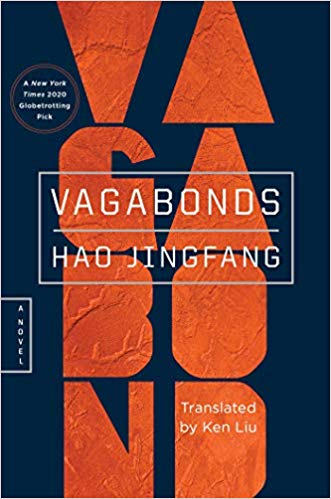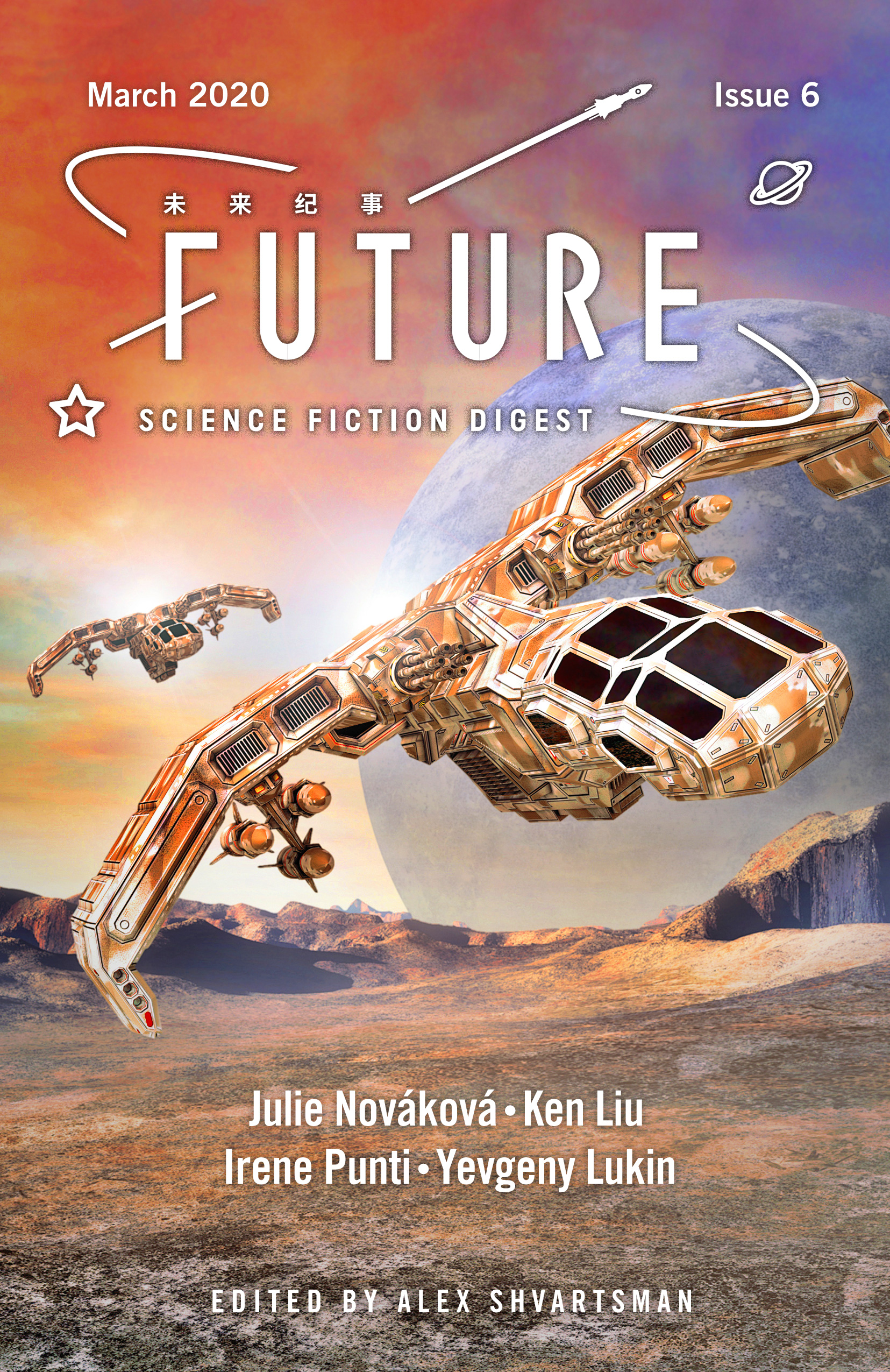
Vagabonds
by Hao Jingfang, translated by Ken Liu
Hardcover, April 2020
Saga Press
ISBN-13: 978-1534422087
In Vagabonds, written by Hao Jingfang and translated by Ken Liu, two previously warring factions, Mars and Earth, attempt to ease their mutual distrust by sending a group of Martian teenagers to spend a few years on Earth as part of a cultural exchange. The novel begins when the group of teenagers returns to Mars. Upon their return, they realize their peaceful mission did little to alleviate the conflict between the planets.
Vagabonds is a novel that would benefit from an attentive and dedicated reader, one who is willing to invest in this rich, unhurried, polyphonic narrative. It refuses to cater to the kind of reader who judges the book by the first ten pages: the first chapter is long and luxuriously slow, full of exposition and musings on the nature of the human conflict that had occurred thirty years ago. This introduction is reminiscent of Jules Verne works and reads as part travelog and part philosophical treatise.
The slow tempo, somewhat unusual for contemporary English-language science fiction, holds up throughout the novel. As the conflict among several personalities and groups develops, Hao Jingfang never strays away from exposition. She painstakingly builds the environment in which the solar system is split into two civil factions by employing long scenes full of technical details:
“The interior of the cylindrical hull was radially divided into four sections. The four quarters were interconnected, but the passageways were so complicated and far apart that few ever bothered to visit the other quarters. The crew took up one of the quarters, and the Terran delegation, the Martian delegation, and the Mercury Group each took up another. Although the four groups had been traveling together for almost a hundred days, there were few cross-group visits. Plenty of all-hands parties were held, to be sure, but the conversation was always strained and formal.”
The surprisingly objective political commentary on the nature of capitalism versus communism is interwoven with a deeply personal discovery: the students realize they are nothing but pawns in a complicated multi-generational game between the two planets. Their time on Earth was challenging; for Luoying, a dance student, the challenge was in “two kinds of adjustment, opposite in direction. While she had to adjust to a far more primitive mode of life filled with inconveniences, she also had to adjust to a far more complex lifestyle. Mars City was much more advanced than cities on Earth in infrastructure and operation, but the lifestyle on Mars was older and simpler. In Luoying’s eyes, Martians had Apollonic clarity, while Terrans had Dionysian frenzy.” Their return to Mars was supposed to be a triumphant homecoming.
And that is where the novel takes an interesting philosophical turn. A dynamic plot is certainly present, full of intrigue, secrets, twists, and all kinds of fascinating scientific theories. However, first and foremost, Vagabonds is about the trials and tribulations of migration. Upon returning home, Luoying, along with her friends, discovers that she no longer belongs in either world. Their time away from Mars had rendered them different. They had absorbed the Western philosophy of Earth and now struggle in the allegedly utopian Martian society. The slow realization that they no longer fit in on their own planet is offered as a commentary even when a burst of emotion could be reasonably expected, but it doesn’t make the sentiment any less raw and poignant. They are true vagabonds, with no place or even language of their own. Having absorbed so many Terran ideas, they struggle to express their own thoughts in the world where “every form of expression is a language: perception, logic, painting, science, dreams, proverbs, political theories, passion, psychoanalysis—all are ways to articulate the world.”
Vagabonds may be set in the fantastical world of the future, and yet its central conflict is very real—this sense of not belonging is something quite familiar to anyone who has moved to a foreign country for a considerable amount of time. The more Hao Jingfang’s characters assimilate, the further away they are from their origins. The external conflicts they face are insignificant compared to their internal struggle. Perhaps it was this theme of migration that attracted Ken Liu, the renowned author and translator, and himself an immigrant and bilingual, to this novel. Liu’s translation is flawless, starting with the most perfect title for a science fiction novel. Liu manages to keep the slightly foreign rhythm and style of the original text without resorting to awkward or unusual English constructions: “The ship they were on was forever vacillating on the Lagrangian point between the two worlds. To vacillate was also never to belong. It was their fate to be cosmic vagabonds.”
It is thanks to the joint efforts of Hao Jingfang and Ken Liu, that the story of psychological warfare and interplanetary tension is elevated to the struggle of finding one’s own place in the universe.











